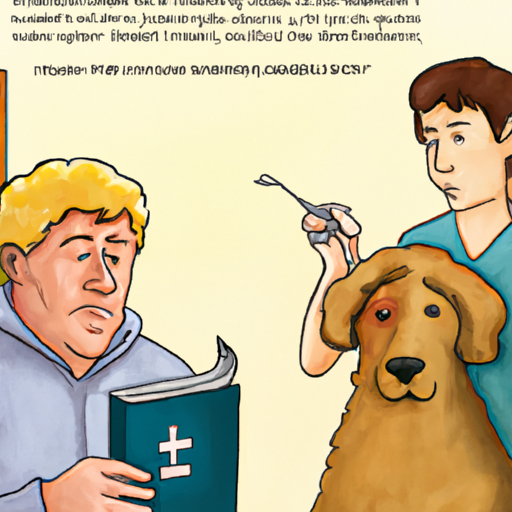Ear infections can be a common and frustrating issue for dogs and their caregivers. This guide will provide you with a step-by-step process on how to handle this problem and help your furry friend feel better as quickly as possible.
1. Understanding the Issue
Dog ear infections are typically caused by bacteria or yeast. Your dog’s ears are a warm, dark, and moist environment, which is perfect for these organisms to thrive.
-
Symptoms: Common symptoms include redness, swelling, excessive scratching, and a foul smell. If your dog seems uncomfortable or is behaving unusually, it’s always a good idea to check their ears.
-
Breeds at Risk: Some breeds are more susceptible to ear infections than others. Dogs with long, droopy ears, like Basset Hounds and Cocker Spaniels, are more likely to get infections.
-
Common Causes: Allergies, hormone imbalances, and foreign bodies can also cause ear infections in dogs.
2. Immediate Steps to Take
If you suspect your dog has an ear infection, here’s what you should do:
- Check the Ears: Look for signs of redness, swelling, or discharge.
- Clean the Ears: Use a vet-recommended cleaner to gently clean your dog’s ears.
- Visit the Vet: If symptoms persist, schedule an appointment with your vet.
Do not try to treat serious infections at home. Your vet will be able to provide appropriate and effective treatment.
3. Preventing Future Infections
Prevention is better than cure. Here are some steps to prevent future ear infections:
- Regular Cleaning: Clean your dog’s ears once a week using a vet-approved cleaner.
- Dry Ears After Swimming: Always dry your dog’s ears thoroughly after they swim or bathe.
- Regular Vet Check-ups: Regular vet visits can help catch any potential issues early.
| Tips for Preventing Infections |
|---|
| Regular Cleaning |
| Dry Ears After Swimming |
| Regular Vet Check-ups |
4. Treatment Options
Your vet will likely prescribe one of the following treatments:
- Topical Medications: These are usually drops that you put in your dog’s ears.
- Oral Medications: If the infection is serious, your vet might prescribe oral antibiotics.
- Surgery: In severe cases, surgery may be required.
Always follow your vet’s instructions and complete the full course of treatment, even if your dog seems to be feeling better.
5. FAQ Section
Q: Can I use home remedies?
A: While some home remedies can provide temporary relief, it’s always best to consult with your vet.
Q: How can I tell if my dog has an ear infection?
A: Common signs include redness, swelling, a bad smell, and excessive scratching.
Q: How long does an ear infection last?
A: With proper treatment, most ear infections improve within a week.
By understanding the causes of ear infections and taking proactive steps, you can help keep your dog’s ears healthy. Remember, if you’re ever in doubt, it’s always best to consult with a professional.
Your furry friend is counting on you. With your care and attention, they’ll be back to their playful selves in no time.



